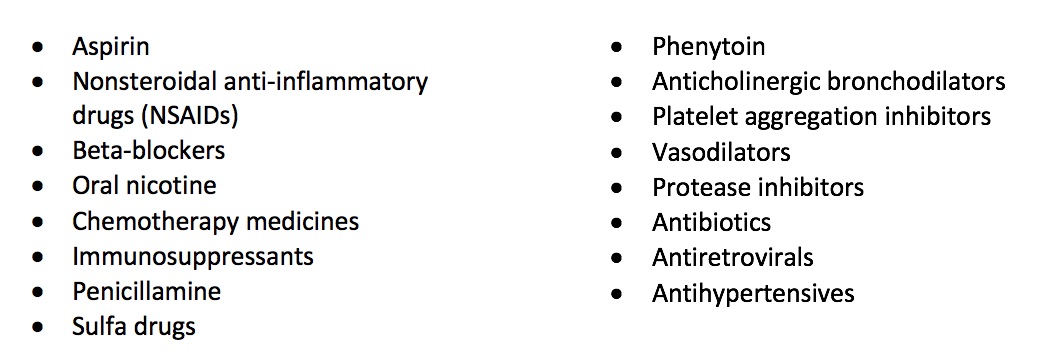Those small, painful sores on your tongue or the inside of your cheeks and lips are more than just an inconvenience. They are canker sores, also known as aphthous ulcers, which are one of the most common types of oral lesions and affect around 20% of Canadians. Women are more likely to get them than men, and the condition sometimes runs in families.
Canker sores fall into three categories, none of which are contagious to others:
These sores or ulcers are different from cold sores or fever blisters, which are caused by the herpes virus and are contagious to other people.
Apart from being an inherited condition, canker sores can also be caused by injuring your mouth, either through dental work, over-enthusiastic brush, sporting accidents or even biting your cheek or lip by mistake.
Toothpastes and other dental products that contain sodium lauryl sulfate have been known to cause sores. Sensitivity to chocolate or coffee, frequent consumption of eggs, nuts, cheese, and eating acidic or spicy foods can trigger the arrival of canker sores, as can nutritional deficiencies.
Some people are allergic to types of oral bacteria, and can develop sores in response to its presence. Hormonal changes, emotional stressors, smoking, or a lack of vitamin B-12, zinc, folic acid or iron may precipitate canker sores.
There are also multiple other medical conditions that can result in the development of these sores, including:
In addition, a whole range of medications can affect the patient orally, including causing the development of canker sores. These are:

Canker sores are typically white or yellow with a reddish outline. They are usually round or oval in shape, and develop under the tongue, inside your cheeks or lips, or at the base of your gums. You might experience a tingling or burning feeling a couple of days before the sores show up. They can be fairly painful and interfere significantly with your ability to chew and speak.
If you have minor canker sores, chances are good they will heal on their own in a week or two and leave no scars. If the sores are major or herpetiform, your dentist could recommend adding a medicated mouth rinse to your daily dental care regime. Types of rinses available contain either dexamethasone or lidocaine, which reduce inflammation and pain respectively.
It’s time to see a doctor or your family dentist if:
The dentist might also prescribe products such as Benzocaine, Fluocinonide or Hydrogen peroxide, or suggest you try oral medications that aren’t actually intended for canker sore treatment. These include an intestinal ulcer treatment called sucralfate (Carafate), which is used as a coating agent, and colchicine, which is normally used to treat gout.
If severe canker sores fail to respond to any treatments, oral steroid medications is an option, but most dentists try to avoid it because of the side effects. As a last resort, stubborn canker sores can be cauterized chemically using silver nitrate, or a topical solution that relieves pain and promotes rapid healing.
You may not be able to prevent canker sores, but with a combination of improved oral hygiene and good eating and sleeping habits, you can avoid suffering for longer than you might otherwise.
For more information on how to prevent and treat canker sores, contact Dr. Handler at 416-267-4661 to schedule an appointment.
Do you ever feel nervous about dentist appointments? Rest assured: we cater to nervous and anxious patients in a gentle and considerate manner. Call us now to schedule a free consultation!